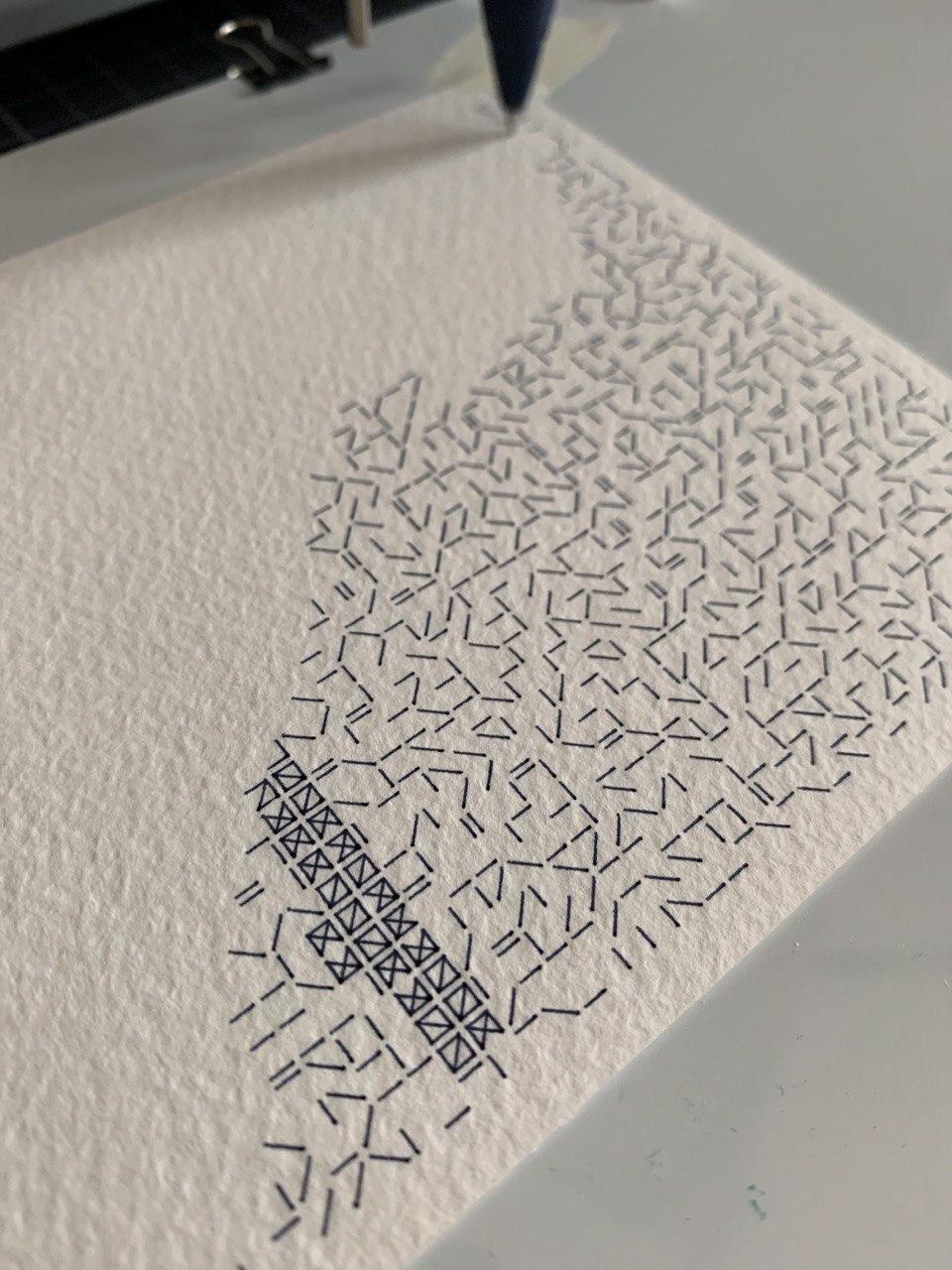Tenday Notes 10 June - 19 June

Every ten days I share a quick digest of what I've been working on. Here's the latest. You can find more in the series here.
I spent the whole morning today trying to figure out why a bunch of latitude and longitude points that I was drawing weren't going into the right places. Turns out I forgot about map projections.
Cartographers can skip this paragraph, but I'll briefly explain what map projections are for the rest of you. Map projections are a way of accounting for the fact that the Earth is round but maps are flat - they stretch the surface of our bumpy spheroid in different ways. Some optimise for direction - making sure that if you set out in a straight line on a map you'll go in a straight line around the Earth. Others optimise for area - making sure countries closer to the poles don't appear larger than those at the equator. Others optimise for other things. There are lots of different projections, and new, exciting and weird ones are invented all the time.
In this case, I had to translate my latitude and longitude coordinates through a complicated equation before they'd end up in the right place. It took far longer than it should have done, but at least now I'll know next time to remember to make those adjustments before spending ages troubleshooting my code.
The results of working through the Missing Semester of CS Education are starting to bear fruit! I had a bunch of tedious processing steps to do with some files and (after a few tries) I figured out how to write a command-line script that would do it for me without me needing to sit there and do it all manually. It feels great when you learn something and then you can immediately put it to use.
My plotter has been working hard all weekend, and it made me wonder about creating a subscription delivery service where every month you'd get a little package in the mail with some nice paper and a few interesting, plotter-friendly pens.
As well as the physical subscription, perhaps there could also be a digital option where you get a newsletter that includes tutorials on making generative art, maybe some exclusive web tools for generating interesting plots, interviews with plotter artists, pro tips, that sort of thing.
One objective would be to give subscribers would get a fresh burst of creativity and inspiration every month - a way to make the most from their investment in their plotter. Another would be to support the community by providing an income stream for artists and tool-makers who currently give most of their work away for free.
Marketing would be relatively simple, because there's already a strong community of plotter folks on the web that could be tapped into. But the big question is whether enough people own plotters to make it a viable business...
There's a blogging maxim that goes something along the lines of "if more than one person asks you the same question then turn it into a blog post". So I've written up some advice to help people decide whether they should study a masters degree in data visualization. Honestly though, the whole thing is probably applicable to any design-led subject.
Here's the crux:
Ultimately, the choice of whether you should do a masters degree comes down to one key question: have you got enough time, energy and freedom to build a portfolio alongside everything else that you're doing?
If the answer is yes, then throw those masters degree applications in the bin and get started with the many self-directed learning resources available online for free. You'll save both time and money, though you'll need to work a little harder in the short-term to establish yourself.
If the answer is no, then a masters degree could give you the space to build a killer portfolio in a productive, focused environment with easy access to smart teachers and supportive peers.
If you know of someone considering switching careers to data visualization, they might find it a helpful read.
I've signed up for Hey, the supposedly-miraculous email management service being launched by Basecamp. It promises a total rethinking of our relationship with email, in the same way that Gmail did (and, I would argue, successfully delivered) when it was launched in 2004.
Like Gmail at launch, Hey is currently invite-only - which gives me a little nostalgia for the time about a decade ago when beta invites to the latest social media service or online platform were a hotly-traded commodity.
You can review all the things that Hey is promising here, which include pre-screening of people emailing you for the first time, splitting out promotional mail and receipts from your main inbox (Gmail does this too), a reply-later option with a focus mode to make it easier to just check in on your email just once or twice a day, and an attachment library that makes it easier to find files.
Most interesting of all, to me, is the price tag. $99/year, compared to Gmail's "free but we're mining your data". I'm not totally convinced that enough people care enough about privacy that they'd be willing to jump ship, but I've been wrong about this in the past. Honestly, that level of pricing means that Hey probably doesn't need to gain a vast number of users for it to be profitable.
I'm gonna test it out over the course of my 14-day free trial (which, honestly, feels a little short to be able to adequately assess something as mission-critical as email) and see if I'm inclined to pay for a year. I'm actually pretty happy with my Gmail setup, and most of the time I stay at or close to inbox zero. On other hand, I do want to support organisations trying new things. I'll let you know how it goes.
Speaking of interesting technology products, Craig Mod made me aware of Syncthing - an open-source file syncing solution through this compelling blog post by Nikita Tonsky. It's basically Dropbox but without the increasingly-awful software interface and artificial limitations on storage space. You pick what folders you want to sync, and on which computers, and it quietly does its thing.
It looks like a very tempting switch from the increasingly-expensive Dropbox. Problem is that I use Dropbox to collaborate with a bunch of other people, and I don't want them to have to walk them through installing Homebrew and setting things up in the terminal. But I can definitely see myself downgrading my Dropbox subscription when it next runs out and opting for this instead. Now if only it would integrate with iOS...

